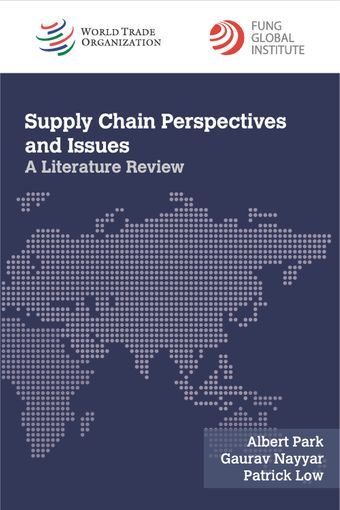Supply chains in the economics literature

- Authors: Albert Park, Gaurav Nayyar and Patrick Low
- Source: Supply Chain Perspectives and Issues , pp 27-40
- Publication Date: January 2013
- DOI: https://doi.org/10.30875/b8dbb55b-en
- Language: English
Many unskilled labour-intensive production tasks began to be offshored by advanced country firms to developing countries, where low-cost but relatively unskilled labour imparted a comparative advantage, essentially in final assembly operations, combined with institutions that could absorb firm-specific technological know-how. This profitable international production fragmentation became feasible with the onset of the information and communications technology (ICT) revolution, which enabled the coordination of spatially dispersed complex tasks at a relatively low cost. The growth of global supply chains has changed the distribution of incomes across countries. Participation in these supply chains, initiated by the successful completion of low value-added manufacturing tasks, contributed to industrialisation and high rates of economic growth in several Asian developing economies. The process of catch-up with developed economies is likely to get stronger as many of these countries seek to move up the value chain through their exposure to advanced technologies (made available by the offshoring process) and build up human capital. At the same time, the continued exclusion of several developing economies from global supply chains, such as those in Africa, means that the gap among countries in the developing world could widen. The international fragmentation of production has also affected the distribution of incomes within countries. In advanced economies, the direct, negative effect of production fragmentation on employment and wages for lowand semi-skilled workers is the primary concern. In developing economies, production fragmentation is likely to create jobs for a large pool of unskilled labour. However, because a relatively unskilled activity in a developed economy may be a relatively skilled one in a developing economy, offshoring may increase the demand for (and returns on) skilled labour among developing economies. These distribution effects, both across and within countries, are likely to affect trade policy, and consequently, the evolution of supply chains.
-
From This Site
/content/books/9789287042354s003-c001dcterms_subject,pub_countryId-contentType:WorkingPaperSeries -contentType:Periodical -contentType:BookSeries -contentType:ReportSeries105


